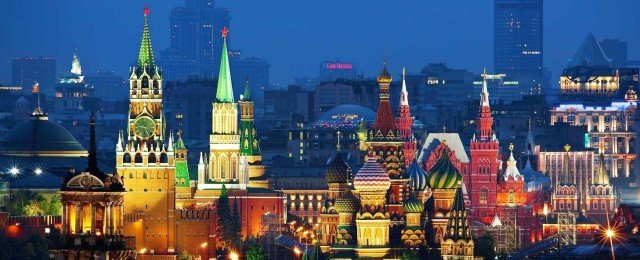
Saudi Arabia: New Policy Restart
… by Viktor Mikhin, … with New Eastern Outlook, Moscow
[ Editor’s note: Viktor Mikhin looks into the military and intelligence upgrades that Saudi Arabia is making, indicating that some countries in the ME may be preparing for a continuation of diplomatic discussions that are backed up militarily.
Saudi Arabia has made incremental changes in their leadership, and has tapped into America’s lineup of Intel experts to improve SIGINT. As Iraq breaks up into sectarian territories, it would be in the Saudis’ own best interests to be watching out for any new charismatic groups who might be developing in destabilized areas.
We can be fairly sure that Saudi Arabia isn’t the only country keeping tabs on elements of the new Islamic Caliphate, said to be surging in Iraq… Jim W. Dean ]
_______________________________
– First published August 4, 2014 –
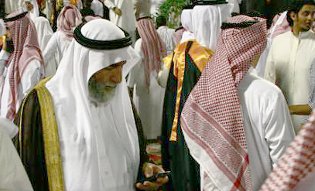
Recent events in the Middle East, in which the situation has changed dramatically over the last 2-3 years, have invoked a strong reaction from those who considered themselves the masters there.
In particular this applies to Saudi Arabia, whose rulers, considering themselves masters of the whole Arab world, were suddenly faced with challenges from a number of states and organizations such as the “Islamic caliphate.”
Quite naturally, the Saudi king began to actively take various measures to strengthen the influence and authority of the state. First on the list were matters of succession, since the Saudi kingdom, which is a strong financial power, is experiencing great difficulties because of the existing domestic system of power inheritance, which provides for the transfer of power from brother to brother.
And this has resulted in an elderly group of potential heirs to the throne, as the founder of the kingdom, Abdul Aziz ibn Abd Rahman ibn Faisal Al Saud (Ibn Saud) died in 1953. Today King Abdullah bin Abdul Aziz Al Saud (90 years) is to be replaced by the aging Crown Prince Salman bin Abdul Aziz Al Saud (79 years), who also suffers from numerous health problems and, in fact, is not very eager to become king.
In this context, the King appointed his brothers’ “pet”, Prince Mukrin, who is 69 years old, as the second heir, that is a kind of “Vice” Crown Prince. The appointment of Prince Mukrin as Deputy Crown Prince, as unanimously noted in the Arab press, indicates an intention not only to strengthen the stability of the regime, but also to keep power in the hands of the family of Saud.
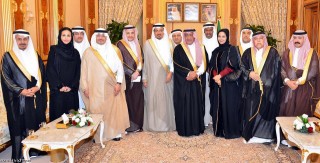
He’s the last of the brothers, the sons of the king, who founded Saudi Arabia, and therefore the throne will no longer be passed from brother to brother, as Prince Mukrin is the last of them.
And it cannot be ruled out, as the British Arabic newspaper Al Quds Al Arabi writes, citing informed Saudi sources, that after becoming king he will appoint King Abdullah’s third son as Crown Prince, Prince Mutaib, who is also actively preparing to take on the highest roles on government.
The Saudi king, realizing that reconnaissance plays a significant role in the affairs of his country, also changed its leadership. The Saudi Press Agency (SPA) announced the royal decree appointing Prince Khaled bin Bandar bin Abdul Aziz head of the General Intelligence Department, with the rank of minister. Incidentally, Prince Khaled takes orders from Prince Bandar, who, according to the king’s decree, as reported by the SPA, will be “the king’s councilor and his special envoy.”
These statements were issued after the jihadists leading the offensive in Iraq announced the establishment of the “Islamic Caliphate” and ordered Muslims worldwide to obey the head of the Caliphate. In Saudi Arabia, the progress of the jihadists is watched with growing concern, especially since they include, among others, many Saudi citizens.
The king himself subjected the jihadists, who are also operating in Syria, to sharp criticism, and ordered the authorities to take “necessary measures” to protect the oil-rich kingdom. This comes amid growing concerns over the fact that the jihadist movement may grip even Saudi Arabia itself.
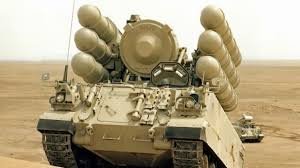
But the Saudi rulers make injecting the kingdom with the most modern weapons, the amount of which exceeds all conceivable limits, a top priority.
So, the military budget of Saudi Arabia, according to the Swedish independent international institute SIPRI, increased from 31 billion USD in 2006 to 45 billion USD in 2010. In 2012 the country spent 52.5 billion dollar on military expenditures.
It should be said that the Kingdom is the only Arab country that has consistently ranked among the top ten states with a huge military budget.
The dynamics of military spending growth in Saudi Arabia, which for quite a long period enjoyed security guarantees from the United States, is impressive. The data presented by SIPRI show that now the kingdom has risen to fourth place in the world (after the United States, China, and Russia) with defense spending at $67 billion, accounting for 25.2% of government spending.
In 2010, the Arab monarchy ordered U.S. weapons for the enormous sum of $60 billion. Under this deal, as reported by the Internet resource Defence IQ, in 2011 the U.S. sold Saudi Arabia a squadron of F-15 fighters for about $30 billion. The Saudis will receive 84 new fighters, and another 70 will be upgraded.
As a result of this transaction, Riyadh became the second largest operator of the F-15 after the United States. The rollout ceremony for the first F-15SA fighter, produced for the Saudi Arabian Air Force, was held on April 30, 2013.

Saudi Arabia has purchased 20 HC-130J Super Hercules military transport aircraft and 5 KC-130J refueling aircraft, and ordered 69 M1A2 Abrams battle tanks from the United States.
The order for new battle tanks is part of a large-scale program to modernize the tank fleet in the Kingdom’s land forces. The Saudis have started upgrading M1A1 and M1A2 tanks to the M1A2S to be suitable for its desert climate.
The upgrades to the main battle tanks will improve their performance characteristics and enhance their combat effectiveness in desert conditions. In 2013, the Ministry of Defense of Saudi Arabia also ordered BGM-71 TOW heavy antitank missiles from the United States, with the contract’s value being estimated at 1.07 billion dollars.
On February 14, 2014 there was news of another large-scale purchase of arms by Saudi Arabia: armored vehicles totaling $10 billion, with an option for another $3 billion. The armored vehicle supply contract was won by the Canadian division of the American company General Dynamics: General Dynamics Land Systems-Canada (GDLS). The types of contracted equipment were not disclosed. The contract is for 14 years.
Canadian Foreign Trade Minister Ed Fast said this is the largest military export contract in the history of the country. Official representative of GDLS Ken Yamashita said that under the contract the company does not have the right to disclose the amount or type of vehicles ordered under this agreement, but they “will be new vehicles”, and the first of them will come off the conveyor in 2016.
Particular attention is being paid to the current difficult times in the KSA National Guard, which operates in parallel with the traditional army, as a counterweight to the ground forces that is controlled by the royal family. It includes tribal members who have traditionally supported the Saudi dynasty. The National Guard has more than 200,000 people, divided into infantry and mechanized brigades, special units, and military police.
In 2013, the National Guard was reorganized into a Ministry charged with the following tasks: collaborate with the Ministry of Internal Affairs in promoting the preservation of security, the fight against terrorism, and the protection of vital installations in the kingdom, and, if necessary, support for the Ministry of Defense. It should be noted that weapons newly purchased abroad are primarily supplied to the National Guard.
Recently Riyadh, seeking to protect itself in the distant outskirts, has stoked the rebellious activities of bands of mercenaries, supporting Islamists in Syria and Iraq, where there is a real war taking place in the Anbar province. The Saudis are planning to form an entire army of foreign mercenaries, whom they plan to use in the fight against enemies in the region, primarily in the aggression against Syria.
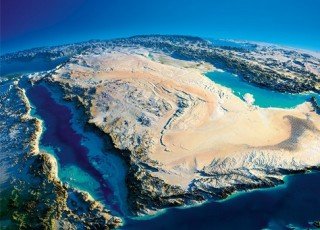
By all appearances, and as noted in the Arab Press, the collapse of the Iraqi government is on the day’s agenda.
It is believed that the Saudis are willing to completely change the balance of forces in the region in favor of the Sunni bloc, thereby building leverage through their mercenaries against Syria and “Hezbollah” in Lebanon, as well as creating a Sunni state in Iraq, and at the same time replacing the “Islamic Caliphate”.
In an effort to restart its domestic and foreign policy, Riyadh is actively cooperating with the current U.S. administration. The website Intercept reported that the U.S. National Security Agency (NSA) has considerably expanded cooperation with the Saudis in espionage, despite statements by the State Department regarding human rights violations in that country.
According to a secret dispatch obtained by the publication, the NSA planned to “provide direct analytical and technical support” in matters of “internal security” to the Ministry of the Interior in Riyadh. At the same time, as the publication notes, the U.S. State Department reported that “representatives of the Ministry of the Interior sometimes subjected prisoners and detainees to torture and other physical violence”. According to said secret document, the new format of cooperation with the Ministry of Defense of Saudi Arabia by the NSA is called “update period”.
In recent years, as the publication notes, the NSA has also expanded its “trilateral relationship” with Riyadh, sharing SIGINT data (signals intelligence, or electronic reconnaissance). One of the objectives mentioned for this cooperation was “assisting Saudi authorities in using SIGINT for locating and tracking of internally displaced persons who are the subject of mutual interest (of the two countries)”.
But it is clear that whatever action is taken by Saudi Arabia and its allies, the region continues to slide into chaos and is teetering on the brink of a major war. The militarization of the kingdom, and indeed other countries in the region, is a serious sign of impending regional war.
In his time, A.P. Chekhov wrote: “If in the first act there is a gun hanging on the wall, then in the last act it must be fired.” It would appear that the last act in the story of the Middle East is not too far away.
______________________________
Viktor Mikhin, a corresponding member of the Russian Academy of Natural Sciences, exclusively for the online magazine “New Eastern Outlook”.
Editing: Jim W. Dean
________________________________

Jim W. Dean was an active editor on VT from 2010-2022. He was involved in operations, development, and writing, plus an active schedule of TV and radio interviews.
ATTENTION READERS
We See The World From All Sides and Want YOU To Be Fully InformedIn fact, intentional disinformation is a disgraceful scourge in media today. So to assuage any possible errant incorrect information posted herein, we strongly encourage you to seek corroboration from other non-VT sources before forming an educated opinion.
About VT - Policies & Disclosures - Comment Policy

